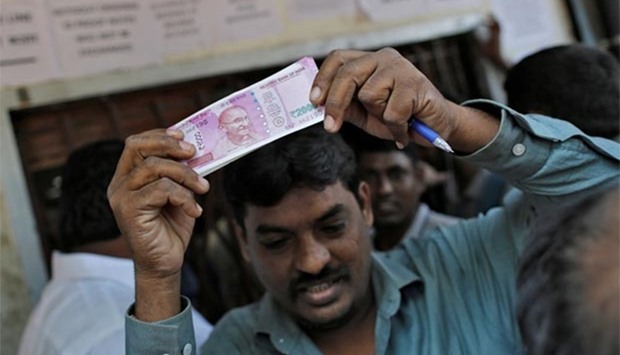India's former prime minister said on Thursday the government's shock move to withdraw all high-value notes from circulation would slow growth in the world's fastest expanding major economy, calling it "legalised plunder".
Manmohan Singh, whose economic reforms are credited with rescuing the country from the brink of bankruptcy in the early 1990s, said the two-week-old scheme had been a "monumental management failure" that would knock two percentage points off growth.
"The way this scheme has been implemented is a monumental management failure and in fact it is a case of organised loot and legalised plunder," Singh told the upper house of parliament to applause from fellow opposition MPs.
"The GDP of the country can decline by about two percentage points as a result of what has been done, and this is an underestimate and not an overestimate."
The government has said the withdrawal of all 500 rupees and 1,000 rupees notes will bring billions of unaccounted money into the formal banking system and ultimately boost the economy.
But it has faced criticism over the slow pace of introducing the new notes, with banks running out of cash and ATMs having to be recalibrated to cope with the different sized bills -- a process that is still incomplete.
Economists have warned this will hit the largely cash-based economy, with consumers unable to make purchases, supply chains disrupted and farmers unable to buy seeds.
"I do not disagree with these objectives, but in the process of demonetisation, monumental mismanagement has been undertaken," said Singh, who headed the Congress-led government until it was ousted from power in 2014.
India's gross domestic product expanded 7.1% year-on-year in the three months from April-June making it the world's fastest growing major economy.

A man holds a 2000 rupees note as he gets out of a bank in Mumbai on Thursday.
